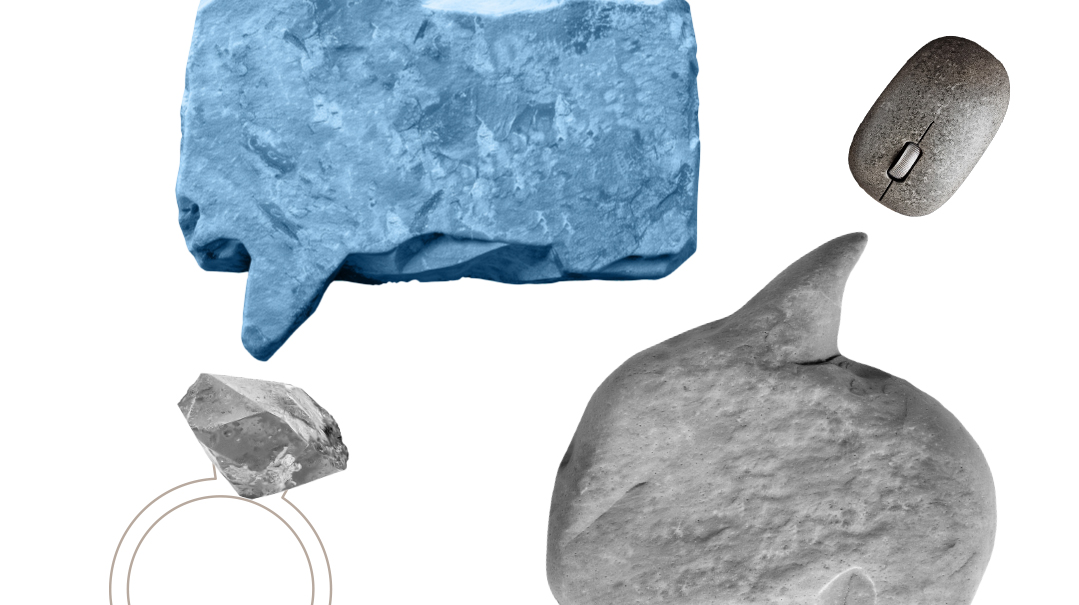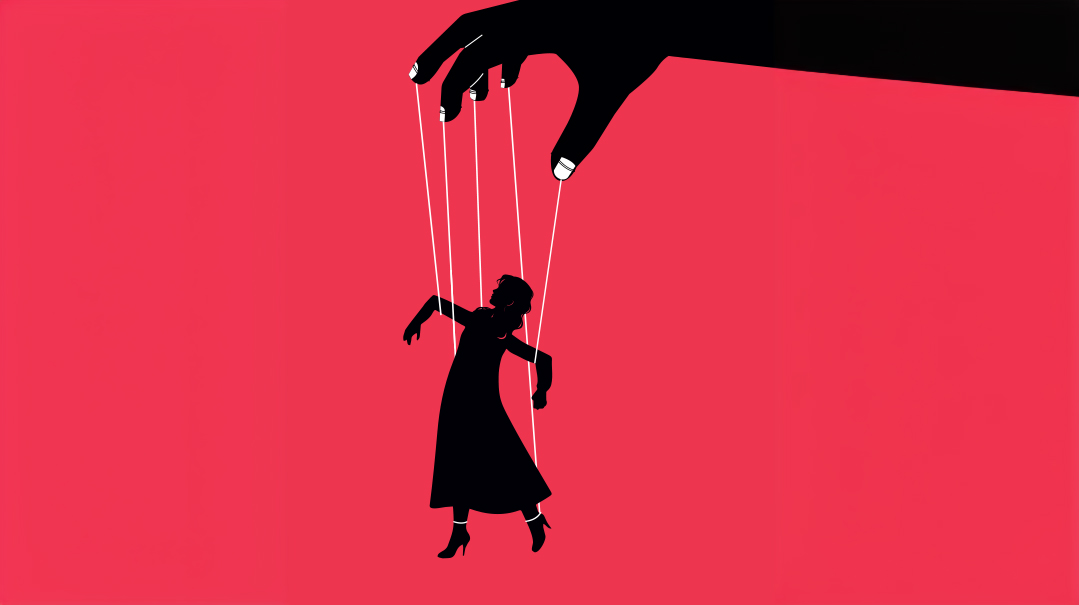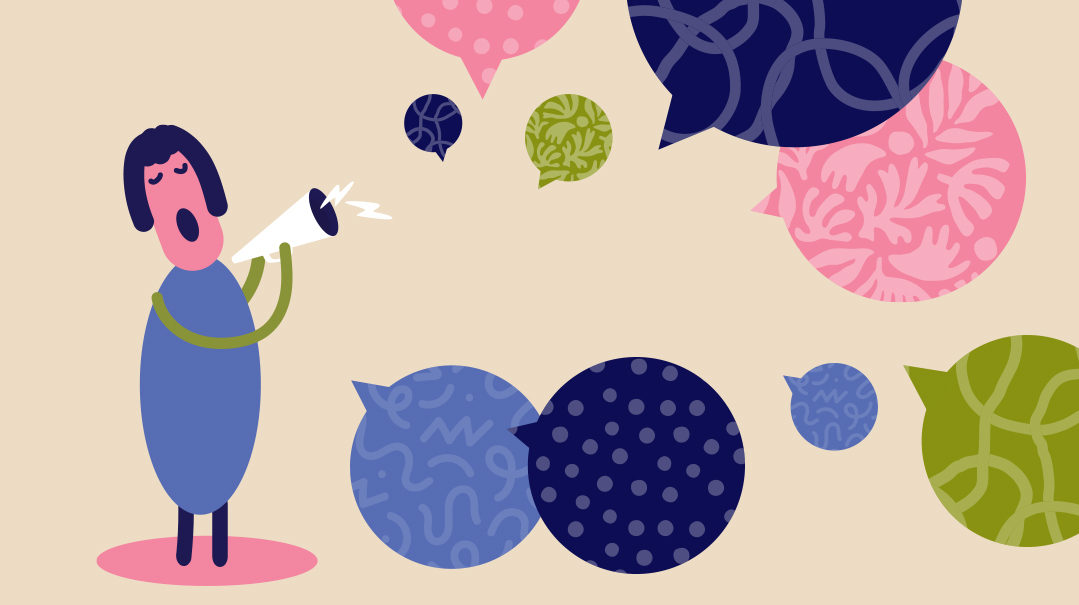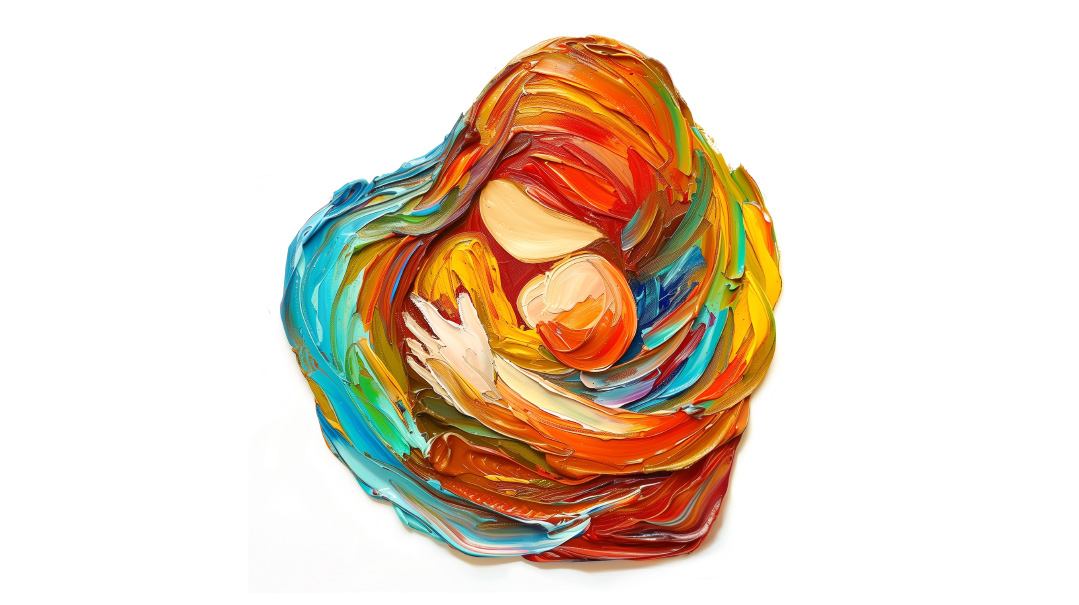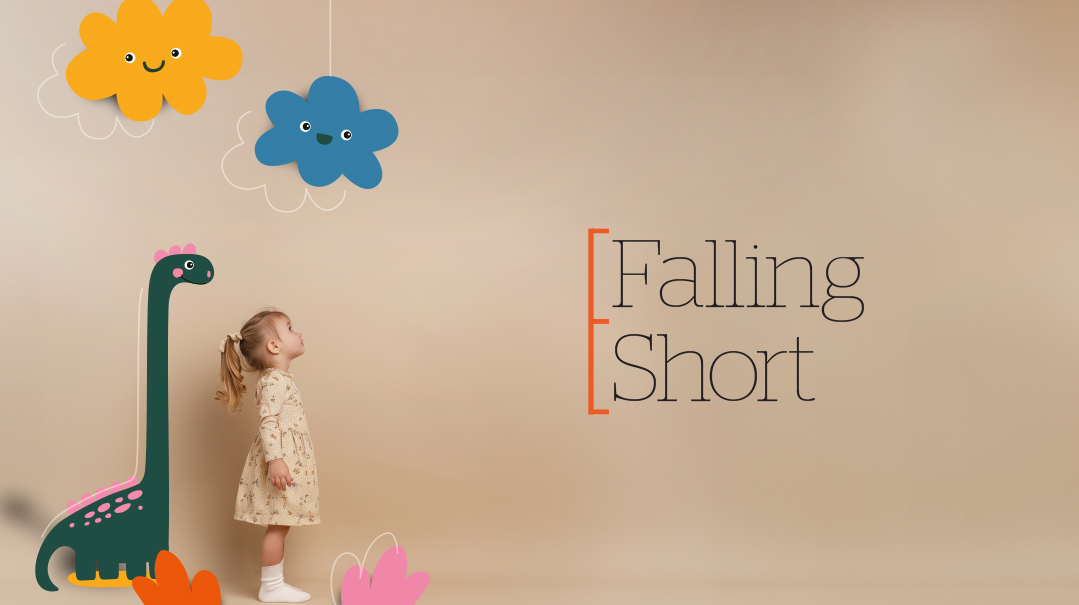The Hardest Goodbye
| May 2, 2023Two years later, Mirlana Morris remembers her son Donny — and the smile that lit up the world
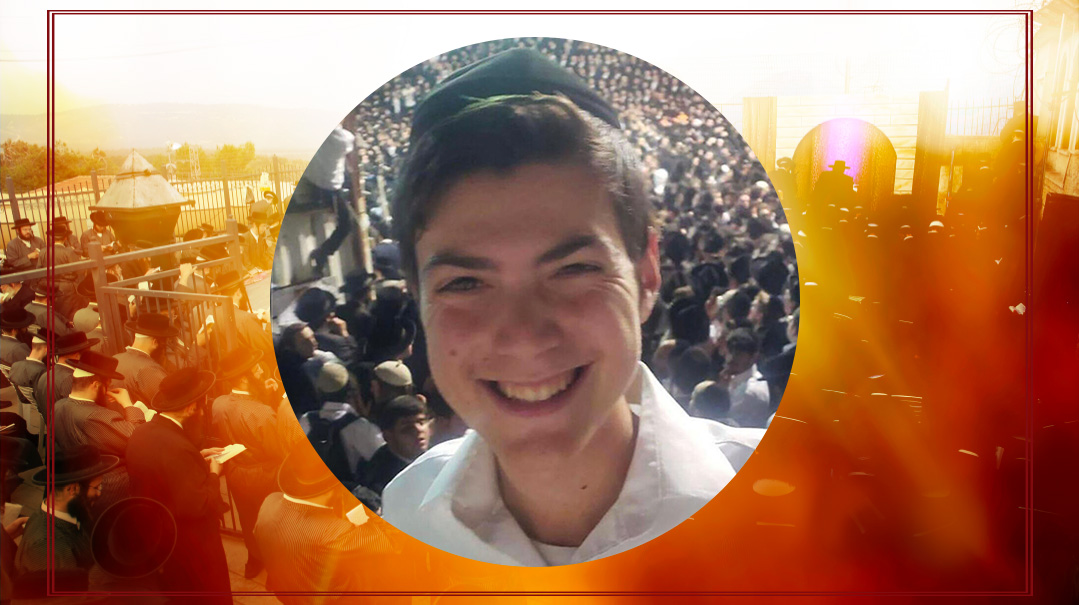
The post-high school stint in Israel has become a hallowed rite of passage in our communities. In late summer, in airports across the world, clusters of mothers surreptitiously wipe away tears, fathers call out last-minute instructions, and their 18-year-old progeny hurry toward the check-in counters, wheelies in tow.
Most mothers anticipate a reunion with their child during a winter visit to Israel, when he returns for Pesach, or for some, at the end of the year. But for Mirlana Morris, this airport goodbye was the last time she would ever see her son Donny.
“A picture popped up on my phone from when we took him to the airport, the last day I ever saw him,” Mirlana shares, “and he’s walking away from us. All you see is his back and a little wheelie.
“And it’s so crazy, the captions with the choice of words we used back then and how much meaning they have now, because for that picture I wrote ‘Goodbyes are never easy.’ ”
It was the hardest goodbye she ever had to say.
Mirlana’s son, Donny Morris, was one of the 45 kedoshim tragically killed in the Meron disaster. A resident of Teaneck, New Jersey, Donny had been a first-year student at Yeshivat Shaalvim who was known as an exemplary talmid, a model of diligence in learning, and an unusually caring friend.
When Donny left to Israel in Elul of 2020, he planned on returning to Teaneck for Pesach break. But Covid had deemed reentry to Israel an uncertain thing, and Donny, for whom learning was a supreme value, worried he would not be able to return to yeshivah after Pesach. He canceled his plans and stayed. A month later he joined the masses of people migrating to Meron to celebrate Lag B’omer.
A Happy Kid
On a gray, winter afternoon in Teaneck/late evening in Israel, I connect with Mirlana, who has generously agreed to share her time, her memories, and her journey over the last two years.
“When I look back at the pictures, I see he was happy, a very happy kid,” Mirlana affirms. It’s clearly something she’s ruminated over, considered deeply.
Like many of today’s frum women, Mirlana juggles work and home, and takes the balancing act very seriously. She’s invested, meticulous, and enthusiastic about her work, and is currently the COO of multiple nursing homes. But despite her prolific work ethic, she’s always had her priorities arrow-straight. “I was always there for the moments that counted. I believe it’s about quality and what you do with your time.”
One of her proudest moments was Donny’s high school graduation. “It was still Covid so the school rented a huge outdoor space for the event. I borrowed a coworker’s truck, had my recreation department decorate it, and he literally was like the king of the castle. I opened the top of the truck, and he came in and we had a huge sign….”
Her joy is apparent as she describes the splash Donny made riding into graduation on his personalized truck. And from her joy, it’s evident that she’s a mother who’s all in, that her pleasure in giving to her children is part of an overriding childrearing principle.
Remembering those special times is crucial now. They help stave off a mourner’s natural urge to marinate in pain and regret, wondering how she could have done things differently, reconstructed it. “I try not to think too much like that. Because I look back and see he was happy.”
I agree, adding, “You seem like you really were that ‘cool mom’ who everyone always admires.” Mirlana laughs appreciatively and concedes, “I tried, I tried!”
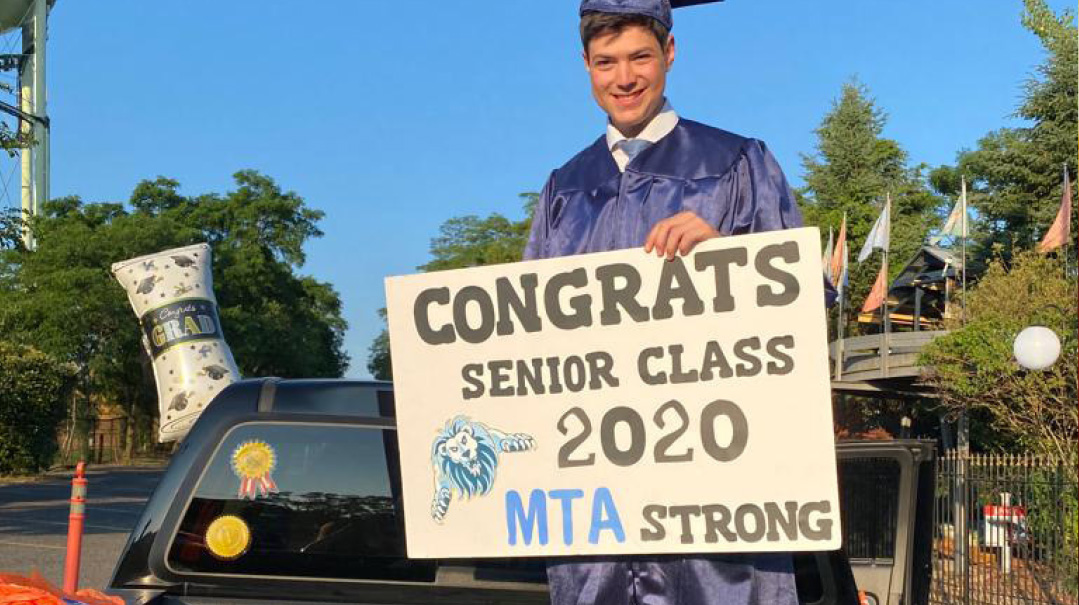
The Nightmare Begins
“When did you know there was something amiss that Lag B’omer night?” I cautiously ask, hesitant to revisit the epicenter of the tragedy.
For Mirlana, there wasn’t an immediate, definitive moment. That Thursday night was a torturous amalgam of information arriving in spurts, some of it correct, too much of it misleading. “At around eight-ish, I started getting texts. Hey, is Donny at Meron, is he okay? I wasn’t concerned that he didn’t answer his phone, because he wasn’t the kind of kid who was looking at his phone all the time.”
Mirlana knew something had happened; the media outlets were reporting on collapsed bleachers, a rumor that circulated initially to explain the event. She got a call from Shaalvim that Donny had sustained an injury, “but I thought it was something minor, like his foot.”
At this point, Mirlana was fielding conflicting reports from too many people: “Oh, I just saw Donny, he’s fine, he just got in a car with a madrich.” The madrich was contacted but averred, “No, I didn’t see him.” As more puzzling information trickled in, Rav Yaakov and Rebbetzin Neuberger from Mirlana’s shul arrived and suggested they say Tehillim. Rabbi Tanchum Cohen, Donny’s high school rebbi, came as well.
Donny’s relationship with both rabbis extended considerably beyond mere congregant or student. He was intimately close with Rabbi Neuberger, and during Covid, he had spent so much time learning with Rabbi Cohen that he became a fixture in the Cohen home. “The youngest Cohen daughter still writes Donny’s name in chalk on the sidewalk,” Mirlana muses.
As late evening dissolved into night, the uncertainty and doubt escalated. “I’m really a positive person,” Mirlana asserts. “I don’t think of the worst, it’s not my personality. So even with the thought that maybe he got hurt, I never in my right mind thought that.”
Donny’s phone had a tracker, and as the confusion intensified, his phone indicated that he was moving. Mirlana noted the movement was nearing his yeshivah, and experienced a burst of relief. Until the tracker showed a sharp deviation in another direction. “I’m like, what’s that?” she remembers with wonder.
The Morrises left no stone unturned in locating their son. Eli Beer of United Hatzalah was contacted multiple times. Mirlana’s brother and sister-in-law searched hospitals. But Donny had vanished.
“There was so much confusion because they won’t say anything to anyone until they make a positive identification,” Mirlana explained. But this policy left the Morrises in an excruciating state of limbo for far too long.
At one point, Mirlana shares, someone prematurely posted a message on social media. “Baruch Dayan HaEmes,” read the post. But this was hours before anything had been confirmed. Now when she reflects on that mistake, she conveys that although social media has its benefits, this was an egregious and dangerous misuse of the platform.
“When did you finally have clarity?” I wondered, pondering how she endured a mixture of frail hope and escalating dread too difficult to comprehend.
Mirlana pauses a moment and says, “I just knew. You know when you just know? You can call it a mother’s instinct, but putting everything all together, I knew.”
An hour later Rabbi Neuberger and Rabbi Cohen broke the news.
Navigating the New Normal
When Mirlana reflects on that terrible night and the following day, she remembers the countless people who crowded her home, people she’s convinced came from a genuine place of love and caring. But she suggests that, at the time, it was overwhelming for her.
When her worst suspicions were finally confirmed, her house was flooded with people. “I did not like that. I’m not the person to cry in front of strangers.” She had nowhere to go, no private space to mourn.
Mirlana, a deeply practical and goal-oriented person, felt it was important to share her takeaways with the people who were there, so they could understand how to best navigate a tragedy of this ilk. Additionally, she wants people to understand the sensitive nature of a situation like hers; perhaps people should have recognized her need for private space with her family as it was unfolding.
But Mirlana is also sympathetic to the thorny position of her friends, community, and coworkers who were at a loss. “No one knew what to do. But what I’ve been learning is that sometimes you just have to take it in, and learn from others for the future what to say and what not to say.”
That Friday night, mere hours after discovering Donny was gone, the Morris family sat down for the seudah. Mirlana describes the agony of trying to conduct a Shabbos seudah: What are we doing? she remembers thinking, we don’t want to eat! Her 14-year-old daughter’s response was the infusion of logic and composure they all needed to traverse that impossible evening: “Donny wouldn’t have been here anyway tonight.”
Indeed, the fact that Donny wasn’t supposed to be back from his year in Israel for another two months is what Mirlana feels “bought her time.” But once his cohort starting returning from yeshivah and leaving to camp, and then returning to Israel for a second year, the reality that he wasn’t following suit plunged her into another stratum of mourning.
“And now,” she says, “he should be here, he should be with his friends at YU, going to weddings, dancing with them….”
“What do you do with those feelings, how do you digest them?” I wonder, picturing Donny’s group of friends, a shadowed silhouette delineating the space where he’s meant to be.
Mirlana’s response is raw and real, at once excruciating and exquisite.
“I have good days and bad days, but everything has different meaning to it now. I’m not an overly emotional person, but now when I go to weddings and they sing ‘Im Eshkachech,’ all I can think about is literally rebuilding the Beis Hamikdash, because if we’d have it, we’d have Donny. When I say Korbanos, it’s Donny. When I say Shemoneh Esreh, half of it is about things I never thought of before. Everything goes back to Yerushalayim, rebuilding the Beis Hamikdash.”
Mirlana pauses a moment. “I can’t really picture it, but I have the images in my head. When we say Mareh Kohein on Yom Kippur, I literally picture being there. In the past I’d say it, but even though I knew what I was saying, I didn’t really know what I was saying. I yearn for it so much more because it means Donny’s back.”
I express wonder at her outlook, at how Donny’s absence has instinctively shifted her to deeply appreciate the things we tend not to notice. But Mirlana, uncompromising in her authenticity, quickly adds, “I’m not saying I’m perfect, I still mess up. But I see everything from a different perspective now.”
I ask about the tendency for people to hoist her onto a pedestal, claiming she’s astounding in her strength, otherworldly in her acceptance. Again, Mirlana’s artless practicality prevails. “Everyone says I’m so strong. But I don’t feel that way, either. I have two choices: I can fold, or I can continue. But I have two kids, they don’t deserve for me to fold.”
She qualifies herself. “I have to be normal. It doesn’t mean I don’t cry and tear, I don’t try to be fake… I have to move on.” And here she immediately corrects herself. “No, move forward. I’ll never move on.”
I marvel at the sheer courage and grit necessary to keep moving forward. Mirlana’s clarity of mind in this mission is inspiring: “I had no control over what happened. But what I can control, I need to control, and that’s making sure my life is moving forward.”
The pain of losing a child has no peer. But the unusual circumstances of Mirlana’s loss yielded another dimension of heartache. Airports are tough places for her to be, particularly Newark’s International departures, the place where she last saw her son. She knows her triggers, and at times, has scheduled her flights from other airports to avoid the distress.
Her son Akiva is set to leave for his Israel year at the end of the summer. This presents its own minefield of emotions. Mirlana is seriously considering accompanying him to Israel, to personally escort him to his destination. “I don’t believe that Israel killed Donny,” she explains. “I believe everything is meant to be, but I also don’t think a person is absolved from making appropriate choices.”
In a most basic sense, Mirlana explains, the tragedy shifted something integral within her. “I know that impossible is now possible.” Living through the incarnation of a mother’s greatest nightmare taught her that the worst-case scenario can happen. This perspective shadows her when dealing with the important people in her life.
Another potential point of pain is meeting new people who don’t know of Donny, and answering the inevitable question: “How many children do you have?” The first time she had to respond, a mere two months after Donny died, Mirlana was at a loss: “I said, ‘Three, two, three,’ and I was thinking of how dumb I sounded,” she concedes.
“Of course, I’ll always have three. But then there’s the next question: ‘How old are they and what are they doing?’ ” Mirlana says ruefully. “So is Donny always 19? And what is he doing?”
In her core, she knows she’ll always have three children. Two are down here, and one is Up There, but the three neshamos she was given live on.
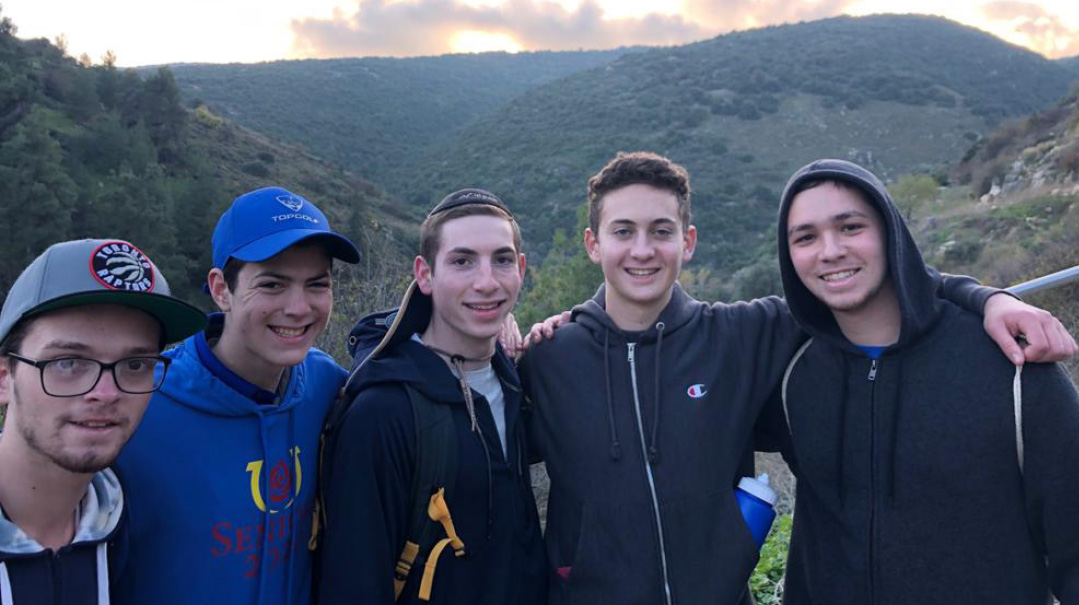
Ongoing Impact
The Meron tragedy was exceptional in how it touched people from every demographic in the Orthodox world. No community was left unorphaned, and the kedoshim were intensely mourned within a wide spectrum of hashkafic sectors. But for myriad communities across the world, Donny Morris was their connection to the tragedy of Meron.
With this in mind, I wonder how Mirlana felt with her private loss, her Donny, assuming the face of the Meron tragedy for so many people.
“Your mourning, your pain, became so public. Do you ever feel frustrated that ‘they didn’t really know him,’ or that you weren’t really able to have a private venue to mourn?”
Mirlana confirms my thoughts, but with penetrating clarity, inverts them entirely. “Yes, it was really hard for me, especially since I’m a very private person,” she begins. “But I realized through time that in a convoluted way, it actually helped me, and continues to help me.”
Understandably, her primary fear was that with time, Donny would be forgotten. But how could he be remembered if people didn’t talk about him? When he assumed the face of the tragedy for so many people, it became apparent to Mirlana that this was Hashem’s way of preserving his memory. She began to realize that perhaps he was a korban for the greater good.
Still, never in her wildest speculations could she have imagined the extent to which Donny Morris, in his death, continued to touch lives.
There was the woman whose son was being bullied by a group of boys in his school and was suffering significantly from it. After Donny died, the school spoke about his middos, his inclusivity, his big heart. A week later, the bullying ringleader visited the home of his victim, apologized to the boy, and said: “After learning so much about Donny and his middos, and knowing he was taken, I asked myself, How can we do this to you? How could I treat you like this? I’m so sorry, and on behalf of all of us, we’re so sorry.” And the bullying stopped.
“Donny made these kids better,” Mirlana says with conviction.
But that was just the beginning.
Mirlana had occasion to visit a website she hadn’t logged on to in years. She saw a message from several months ago, from a girl who attended a Bais Yaakov in Mexico. The girl, who was struggling significantly in her Yiddishkeit, had been deeply affected by what she’d heard of Donny and requested a copy of Daniel Ish Chamudot (a book published by Shaalvim Yeshivah’s faculty and students in Donny’s memory).
It took several months until Mirlana was able to contact the girl, but when she did, what she heard astounded her. The Mexican girl shared that everything she’d learned about Donny had helped her get back on track in her observance. “A 17-year-old Bais Yaakov girl from Mexico!” Mirlana states emotionally. “Donny’s story had to become public if he was going to be able to help her.”
A 12-year-old girl was broken when she heard of the tragedy and found herself unable to daven and maintain other commitments to Judaism. Subsequently, her mother noticed that she’d started davening again and was totally back to herself. The girl explained to her perplexed mother: “Donny came to me in a dream and said I shouldn’t be upset because he’s in a good place and he’s really happy. So how can I be upset if Donny’s happy?”
Mirlana shares that there have been at least another six instances of dreams like this one, “at least that I know of,” and in each case, Donny knew exactly whom to visit. Most of those he visited don’t know each other, and some aren’t even particularly close to Mirlana and her family, but in each case, Donny relayed the same message: “I just want you to know that I’m happy.”
Donny’s hallmark had always been tefillah, and during his high school years, in an expression of that commitment, he ran the hakafos at MTA’s Simchas Torah. There, he’d always given a particular friend the same hakafah. This past year, back from Israel, that friend was especially down about Donny’s absence and didn’t feel he could bring himself to attend hakafos in shul.
After some prodding, the boy decided to go. When he returned home, his mother was astonished to see his entire demeanor had shifted. “Donny’s still here,” the boy declared. “He’s still with me, watching over me.” With 400 people in the shul, what were the odds that he’d get to dance with the Torah during the exact same hakafah Donny had gifted him all those years at school? But that was exactly the hakafah he was given.
“Donny’s still here.”
Many of Donny’s quiet, under-the-radar practices went viral after his death. Notably, a personal schedule he crafted for yeshivah, handwritten on a piece of paper, was given to the Morrises during the shivah. There, precisely delineated were the things he set to accomplish each day of his week. Among them, penned in for Thursdays, was “call grandparents.”
Although Donny used to call most of his American family members on Fridays, Grandma had requested that he call on Thursday, which worked better for her. In order to remember that Grandma was a Thursday call, Donny had entered this into his schedule. Subsequently, Mirlana got a call from a woman who shared that because of Donny’s practice, her grandchild now called her every week.
A boy, someone who met Donny at Camp Dora Golding, messaged Mirlana. He’d been the recipient of Donny’s kindness and encouragement at camp, and wanted to express his condolences. “I knew something was wrong,” he told her, “because Donny called me every Erev Shabbos. And the day after Meron he didn’t call.”
Another Dora Golding boy left an emotionally charged message, explaining how impactful Donny had been for him. In camp, he wasn’t a natural fit for the “chevreh,” and didn’t really have friends. Tearfully, he explained how Donny had deliberately brought him into the group, and because of Donny he became one of the boys.
The Connector
I think of these stories, how Donny was the link connecting lonely, sidelined kids to the group, of how he linked grandparent to grandchild. And I think of how he was that link for people who were drifting from their observance to our Divine chain.
When I mention this to Mirlana, she agrees. She describes the year Covid restrictions were in full force. A group of Teaneck boys who attended diverse high schools would meet every Shabbos afternoon at a local park, each bringing his own chair and maintaining social distancing. After their first Israel year, when Donny tragically didn’t return, these Shabbos meetings ended as well.
One of the mothers from this group reached out to Mirlana and shared that her son realized it had been Donny who’d initiated and maintained their alliance, circling the neighborhood every Shabbos, knocking on doors, and gathering the guys for their get-together. He was the link.
He’d been the link, uniting people then. And now, even in his absence, Donny’s memory continues to work its magic, linking people to each other and to Hashem.
This, asserts Mirlana, is what helps her cope. “I see he’s touching lives.”
Ever insightful, Mirlana suggests how unfortunate it is that so much of Donny’s goodness was only apparent to her after he was gone. Now more than ever, she recognizes that there are so many positive interactions and encounters our kids initiate that we’ll never know about. Frequently, we unwittingly witness snippets of goodness and kindness in other people’s kids. Why not share these moments with their parents, she suggests, creating a virtual cycle of satisfaction and pleasure while it can be shared between parent and child.
A mother who heard Mirlana speak about this point truly took it to heart. She called Mirlana after an amusement park trip to tell her how her son, Akiva, had taken the pains to clear up the garbage a group of boys left over after they finished eating.
Again, I think of the way Donny had assumed the role of the link, how in his zechus parents were connecting to their children, appreciating them in ways they hadn’t before.
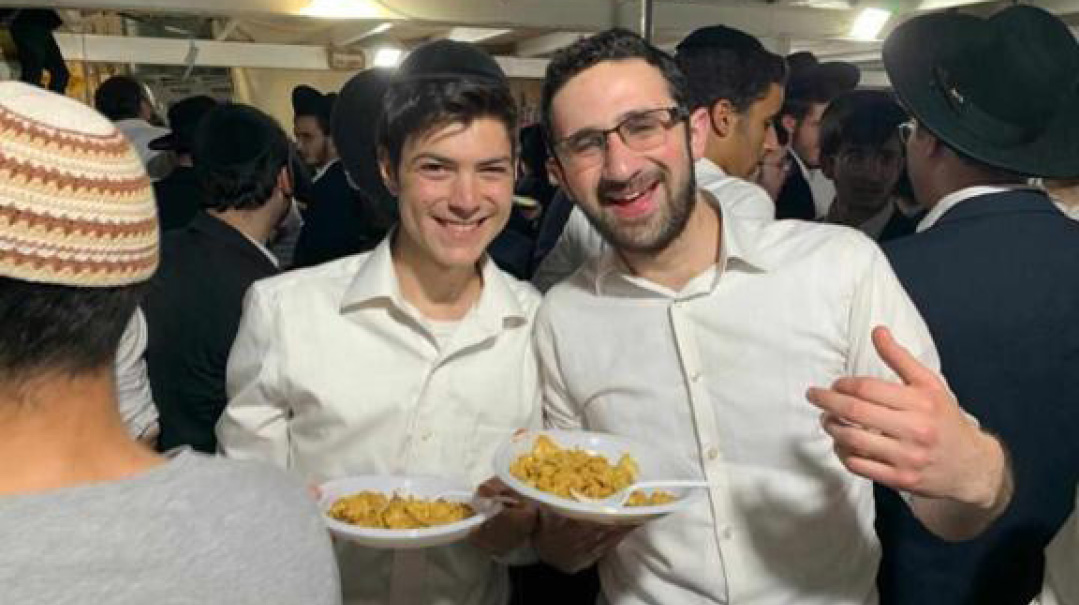
Regards from Above
The public nature of Mirlana’s loss has also helped her through rough patches over the last two years. She began speaking publicly about her loss to groups, ranging from adults to kids at camp. “I’m not a public speaker and it’s not therapeutic for me to speak about him. But I feel that if one person walks away with something that makes them a better person, it’s worth it for me,” she avers.
On one occasion, she was on the way back from a trip to Israel to visit Donny’s kever. Understandably, these trips are emotionally fraught, with the plane ride back particularly grueling. “I hate leaving Israel,” she shares, “because I feel like a bad mom leaving my son.”
On the flight back, Mirlana saw a message from a woman she didn’t know who’d heard her speak. The woman shared that she’d just married off two children in close succession, and for both weddings they’d given out chuppah tefillah cards l’illui nishmas Donny. She included a picture of the card.
“How many people go to a wedding? Four hundred people? All these people at some random wedding are davening for my son?” Mirlana says in wonder. “Even though at the beginning I had a hard time with the public part of this, there’s something to be said about it, if it’s something that’s going to help Donny.” Here she interjects, “I don’t understand what it means to have an aliyah for the neshamah. But I assume it’s something good….”
She pauses, and I finish the thought “… then it’s what you want.”
“Exactly,” Mirlana concurs.
She sees how Hashem sends her chizuk in spurts, precisely calibrated to present exactly when she needs it most. Another encounter this year was too specific to be deemed mere coincidence.
Mirlana had decided to work on saying the brachah of Asher Yatzar with more kavanah, slowly and deliberately. When she saw a pretty Asher Yatzar sign, she purchased it as a reminder of her commitment. In the morning she had the sign affixed outside her bathroom.
That very evening, her sister, a teacher in Frisch, a major New Jersey day school, sent her a clip. It showed school staff handing out Asher Yatzar cards to their students, and hanging signs dedicating the initiative l’illui nishmas two people. One of them was Donny.
Mirlana expresses her astonishment: “Like out of all the things to do, why did they pick Asher Yatzar, why did I pick Asher Yatzar? And on the same day they hung up signs at Frisch, I hung up my sign!” she says, incredulous at the interplay of the two episodes.
“These are the things that really help me, and make it so much more… understandable, I guess.”
Meant to Be
Mirlana did not want any ambiguity concerning that tragic night in Meron. She accessed and obtained every piece of information available, viewed video footage of the alley where the kedoshim lost their lives, and spoke to countless people who were with Donny in Meron. “I know way more than I should know as a parent,” she concedes. “And according to the facts of the night, Donny shouldn’t have been in Meron anymore when it happened. Hashem wanted him there.”
Donny was with a group of friends who had planned to leave earlier. But first they lost a member of their group and backtracked to find him. Then another boy asked to stop and eat. These apparently minor hiccups delayed them significantly, edging their departure closer to the time of the tragedy.
Even the iconic picture of Donny that circulated after his death, where he is seen smiling, radiant with happiness against a backdrop of multitudes, wasn’t typical of him. He wasn’t a picture taker, but he insisted on stopping to snap this memento, which he immediately sent to his father, eager to share his elation with him. “Taking that picture was another delay,” Mirlana says.
But in the end, it was something Mirlana gathered from one of Donny’s friends, someone who’d been with him in the fatally congested passageway on that horrific night, that affirmed the Divine Hand in Donny’s passing.
Donny, together with friends, was slowly making his way through the choked space. When he had nearly reached the exit, a man behind him fell. Donny and his friends insisted on helping him up, and turned around to offer assistance.
Donny was in that position, facing the crowd, when the calamitous domino effect of people falling began. “He fell on his back, and everyone fell on his heart,” Mirlana says. “And to me that was strategically done. Other people didn’t fall that way, they fell on their sides,” she finishes.
This was a piece of the puzzle I had not been aware of. Bewildered, I ask, “How do you see that? It’s almost like Hashem took a pair of tweezers and plucked him from the masses of people in that alleyway.”
“You know,” Mirlana reflects, “it’s so interesting — in the beginning, Rav Asher Weiss came to talk to us, and I was a little taken aback at how matter of fact he was. I wasn’t prepared for that. But he said it exactly how you just said it. He said that Hashem handpicked the prettiest flowers in the garden that night in order to make His garden up in Olam Haba. He literally picked the flowers,” she emphasizes.
“I was like, okay, right,” Mirlana mimics her disbelieving tone from that moment.
“But the more you think about it, yeah, Hashem handpicked those flowers. I believe it,” she expresses with solid conviction.
I think of this boy, who both in his lifetime and in his death, linked people closer to each other and to Hashem, of how his very last act on earth was an act of chesed. And, intuitively, I agree with Mirlana. Hashem did indeed handpick the most beautiful of flowers.
(Originally featured in Family First, Issue 841)
Oops! We could not locate your form.

